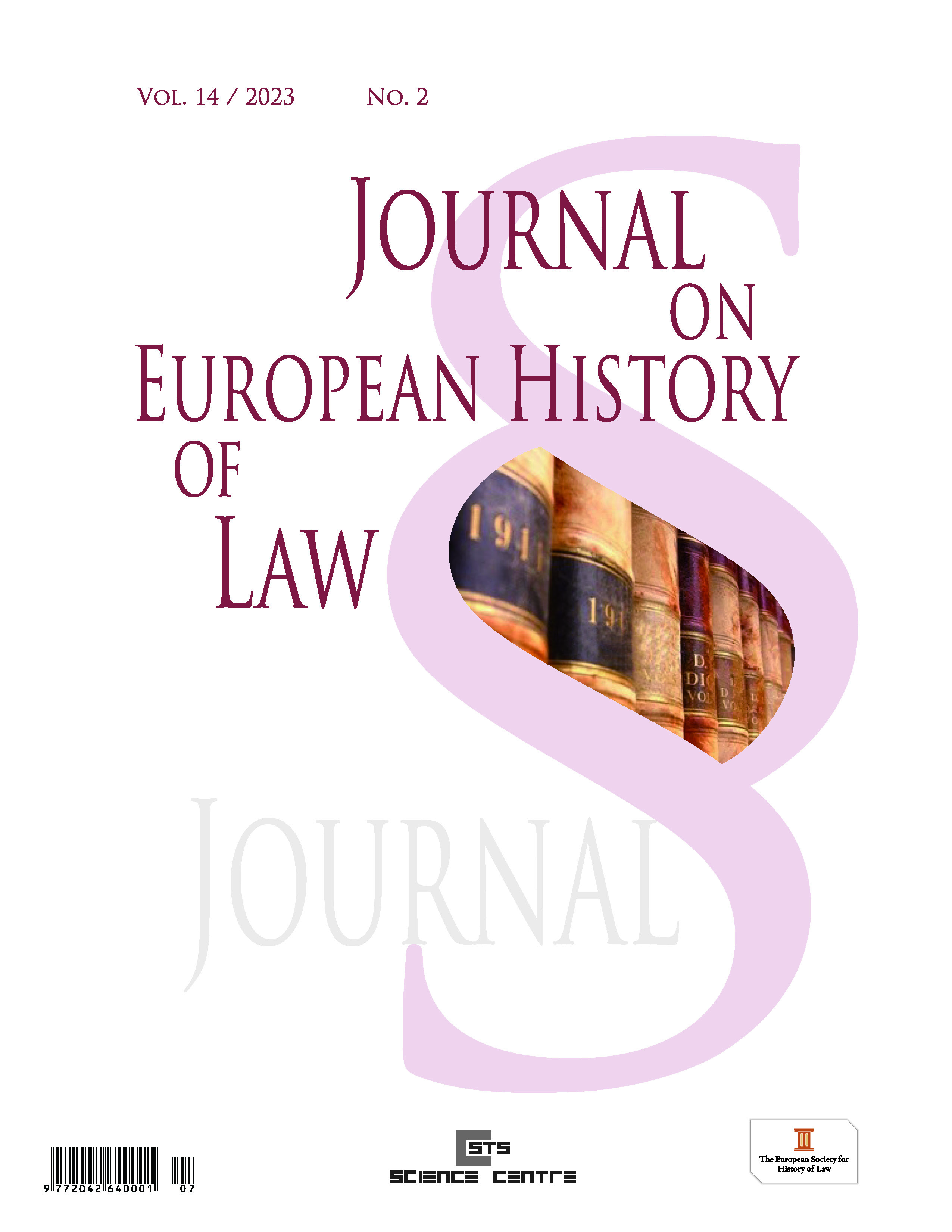In XII minuendi sumptus sunt lamentationisque funeris – sed ea non tam ad religionem spectant quam ad ius sepulcrorum: Restrictions on Funeral Luxury in Rome
In XII minuendi sumptus sunt lamentationisque funeris – sed ea non tam ad religionem spectant quam ad ius sepulcrorum: Restrictions on Funeral Luxury in Rome
Author(s): János ErdődySubject(s): History, Law, Constitution, Jurisprudence, History of Law, Ancient World, Roman law
Published by: Evropská společnost pro právní dějiny, z.s.
Keywords: Funeral; luxury; restrictions; parsimonia; tenuitas; religio; superstitio; leges sumptuaria; the Law of the Twelve Tables; Polybius; Plutarch; Numa Pompilius; Romulus; Festus;
Summary/Abstract: The legal attempts to curb funeral lavishness and extravagance come into two groups: the first includes the provisions of the Law of the XII Tables, the second the lex Cornelia sumptuaria (81 BC), and the leges Iuliae sumptuariae (46 BC, 18 AD) (Rotondi, Sauerwein). In this presentation, the focus is drawn to the provisions in the XII tables. In ancient law, funeral sumptuousness was mainly regulated by the Law of the XII Tables. Prior to the early Republic, some restrictive measures appeared in the so-called leges regiae. Spectacular, artistically designed, and expensive funeral ceremonies and processions were not far from the Roman thought. As a result, the provisions on Table X restricting these lavish ceremonies could be considered as direct precursors of leges sumptuariae (Sauerwein) since the immoderate spending constituted a substantial and profound social problem, even though this excess was available only to the upper class. The casuistic and detailed rules of the XII Tables suggest that the extravagance of funerals and burials could not be categorically severed from the worship of the gods. Therefore these rules are directly related to religio. The sources include Cicero’s texts in De legibus, Polybios’ detailed account of Roman funeral rites, and Pliny the Elder’s reports on funeral customs. These texts show that many rituals were associated with worshipping the gods and sacrificial rites. This circumstance underpins the religious origin and character of these rules. At this point, however, interesting questions arise from this observation. Why is the ius sepulcrorum linked with religio? Did the proper worship of the gods serve as a sufficient justification for more intensive obedience?
Journal: Journal on European History of Law
- Issue Year: 14/2023
- Issue No: 2
- Page Range: 82-90
- Page Count: 9
- Language: English

